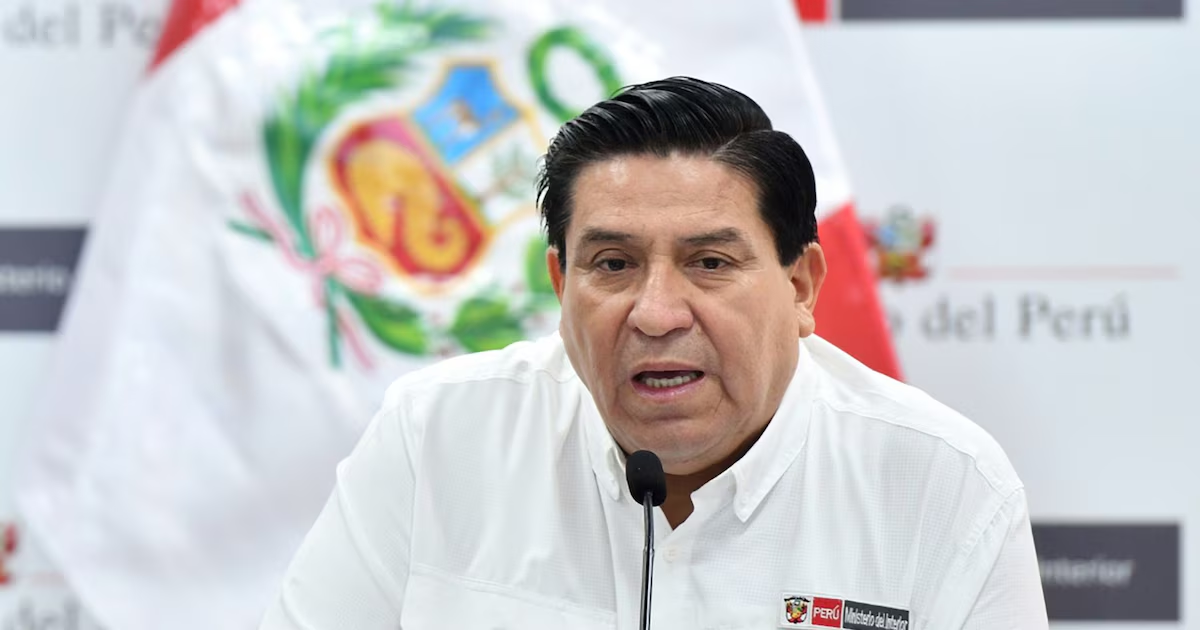
Minister of the Interior, Vicente Tiburciodemanded the resignation of criminal lawyer Giovanna Vélez Fernández as a consultant at the office of the criminal lawyer after learning that in her doctoral thesis from the Pontifical Catholic University of Peru (PUCP), she described the period of violence that affected the country from 1980 to 2000 as follows: It’s not terrorism, it’s a domestic armed conflict.
In an interview with WillaxMinister Tiburcio reacted categorically that the country had experienced terrorism, underscoring the validity of Law 25475 on this issue and rejecting the explanations offered by former officials. He claimed to have been aware of this situation some time ago.
He reported that his appointment was made through the human resources department, which he said never alerted him to the controversial references. He said he immediately tendered his resignation after learning about it. “When we entered the field and started conducting evaluations, this person told me he was already working in the ministry. All evaluations are done by human resources, so his resume was suitable for the position. (But) we didn’t have it, and that’s why.” As soon as I realized this, I asked her to submit a notice of resignation, and the process is already underway. Just today, before I came to your program, I asked the Chief of Staff: “I want you to resign immediately.” I am not going to allow any of that in any way,” he reiterated.
However, Giovanna Vélez defended her resignation, saying that her resignation was not due to what was stated in her academic work, but rather to the rejection of her by a section of parliament and the announcement that: He will accuse Chief Prosecutor Patricia Benavidez of plagiarizing more than 30 pages of his own investigation. “The minister has given himself over to a media program, which seems to me imprudent,” he declared to La Repubblica newspaper.
He said that the academic research mentioned did not deal with the nature of so-called terrorism, but rather consisted of an innovation project on the synthesis of records of victims of enforced disappearances. He thought: The minister took the expression out of context and said the call for resignation came after pressure from parliament began for other reasons.
“I was not asked to resign because of the problem with my thesis. I just learned about it on TV,” he said, adding that he had held the same position twice before, even though his thesis had already been published since 2019.
“What happened? It’s revenge for that problem, no doubt.. I have held the position before, and when you fill a position of credibility, your background is considered…HR reviewed the matter and confirmed that I met the requirements for the position. This is what the Minister himself said in an interview. However, he stated that he did not know that he had written the paper or that he had used that term,” he claimed.
Similarly, from their perspective, demands for resignation based on the use of legal expressions recognized under international humanitarian law constitute an interference with academic and professional freedom. “To try to justify your resignation on the basis of legal terms represents, in addition to ignorance, meanness and lack of chivalry on your part, as it defames an honorable professional.”he pointed out.



